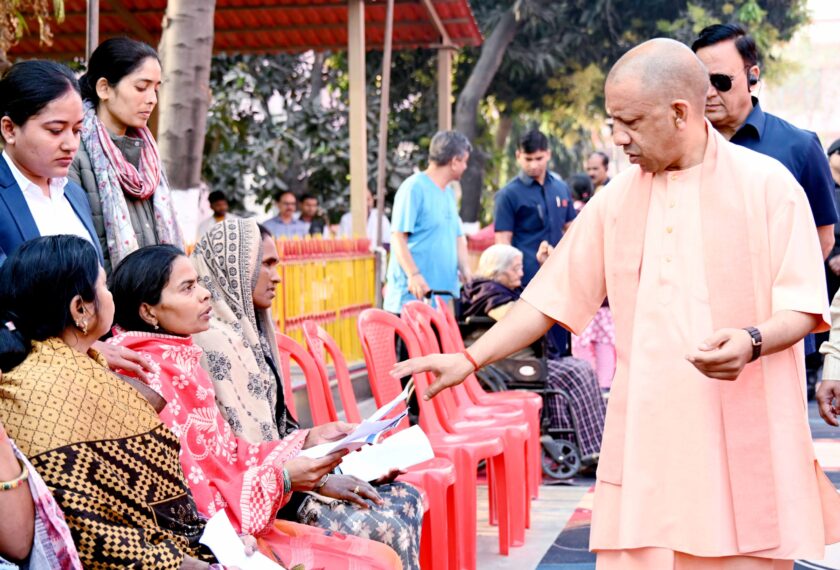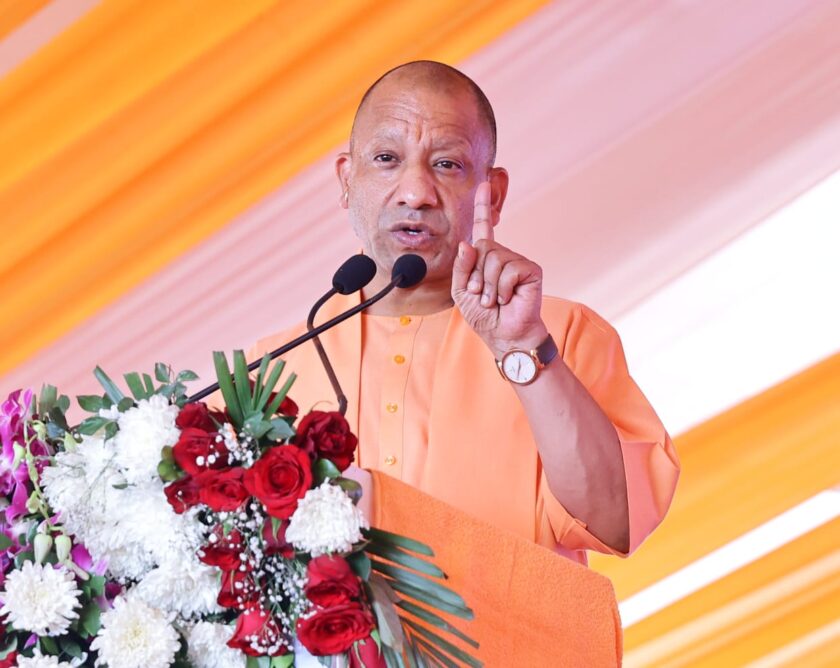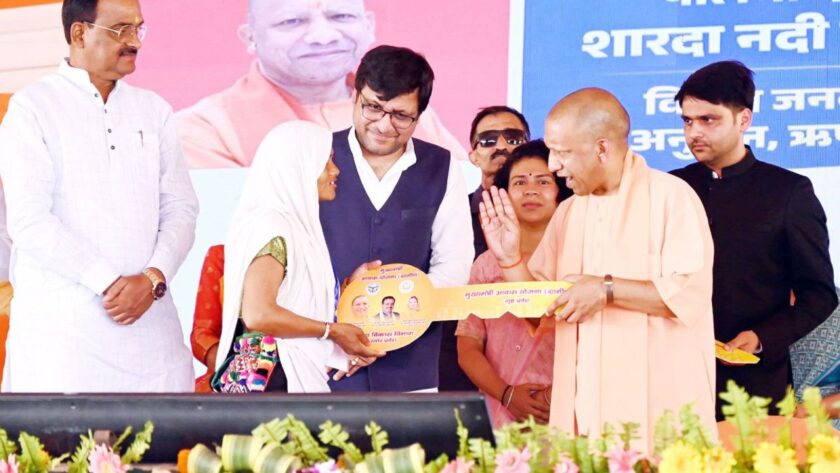- Chief Minister inaugurates Padma Shri Dr. Lalji Singh Advanced DNA Diagnostic Centre, AI, Drone and Robotics Lab ‘Tarkash,’ and Atal Library
- 75 Mobile Forensic Vans for all districts/commissionerates of the state flagged off; tablets distributed to students
- ‘The UP State Institute of Forensic Science is connecting the state police and future generations with new-age courses and technology, which is the need of the hour and the foundation for a developed India,’ says Chief Minister
LUCKNOW: Chief Minister Yogi Adityanath said that the Uttar Pradesh State Institute of Forensic Science is connecting the state police and future generations with new-age courses and technology. “This is the need of the hour and the foundation for a developed India,” he said. He was speaking at the inauguration of a three-day international summit on the topic of “Dimensions of Cyber Warfare, Multilateral Legal Frameworks, Forensics, and Strategic Countermeasures” at the Uttar Pradesh State Institute of Forensic Science. Today marks the third anniversary of the institute, and its achievements over the last two years provide a strong foundation for its future growth. The Chief Minister expressed his pleasure that the institute has begun its third session. He added that the three-day summit in a developed Uttar Pradesh will strengthen our ability to successfully combat present-day challenges.
Modernizing Forensic Infrastructure
Earlier, the Chief Minister inaugurated the Padma Shri Dr. Lalji Singh Advanced DNA Diagnostic Centre (ADDC), the AI, Drone and Robotics Lab ‘Tarkash,’ and the Atal Library. He also flagged off 75 new mobile forensic vans (MFVs) for all districts and commissionerates in the state and distributed tablets to students.
The Chief Minister said that the seminar is a critical need of the hour. Citing the importance of traditional Indian practices of ‘Manthan’ (churning), he stated that whenever such a churning takes place, nectar is always produced. He highlighted that this tradition, which has existed since the Vedic period, is reflected in events like the Mahakumbh, which symbolizes the churning of India’s entire knowledge tradition. He said the establishment of the State Forensic Science Institute in Lucknow was driven by this very intention.
The Chief Minister emphasized that Indian culture has always advocated for an open exchange of knowledge. He said that when the tradition of contemplation and discussion is disrupted, it leads to new conflicts and hinders the journey of progress. He cited the example of the largest gathering of 88,000 sages at Naimisharanya 3,500 years ago, which led to the creation of the Puranas.
The Need for Modern Solutions
He noted that the three-day summit would deliberate on crucial issues. “We must examine the modern-day needs of forensic science. How can we face challenges like cyber fraud and meet the requirements of national security? What are the benefits and challenges of drone technology and robotics?” he asked. He expressed confidence that the new churning of ideas at the summit would prepare society for the challenges of today, benefiting the police force and citizens of the most populous state in the country.
The Chief Minister recalled that before 2017, Uttar Pradesh had only four forensic labs. This often resulted in criminals escaping punishment as it took years for samples to be analyzed, by which time evidence was often destroyed. He said that his government has focused on establishing ‘A’ grade forensic labs in all 18 ranges of Uttar Pradesh. Currently, 12 labs are complete, and six are under construction.
Strengthening Law Enforcement
With the implementation of three new laws in July 2024, forensic evidence has become mandatory for all crimes punishable with a sentence of seven years or more. The state government had already provided one mobile forensic unit to each district, and now 75 new units have been provided to aid in evidence collection and ensure the conviction of criminals.

The Chief Minister also mentioned that before 2017, there was only one cyber police station in Gautam Buddh Nagar, with another under construction in Lucknow. His government has since established cyber police stations in all districts and set up cyber help desks at all 1,587 police stations. Master trainers have been deployed to train police personnel. To combat current challenges, including cyber fraud, the government is also working towards establishing a dedicated cyber headquarters.
He referenced ‘Operation Sindoor,’ where the entire war was fought in the form of cyber warfare, emphasizing the need to move beyond traditional fighter planes to technologies like supersonic missiles and drones that can counter cyber threats. He highlighted the inauguration of a world-class ADDC lab, as well as the AI, Drone, and Robotics Lab, which features drones capable of carrying up to 40 kg payloads. The Atal Library, named after former Prime Minister Atal Bihari Vajpayee, was also inaugurated.
Looking Ahead
“We must continuously prepare ourselves for current challenges and the demands of society,” the Chief Minister said. He credited technology for the successful organization of the Mahakumbh 2025 and said that the UP Police are also using technology to bring criminals to justice within 24 to 48 hours, a swiftness that is increasing the public’s trust in law enforcement.
He revealed that the land on which the UP State Institute of Forensic Science was built was previously encroached upon by a land mafia. The government reclaimed the land and established the institute, which has now become a prestigious institution. He acknowledged the institute’s affiliation with the National Forensic Sciences University, Gandhinagar, Gujarat, and its progress towards achieving its goals.
The Chief Minister concluded by stating that while technology has made our lives easier, it has also presented significant challenges. He stressed that we must use technology to find solutions and protect humanity from negative forces. He urged the UP police force to continuously train at the institute and keep themselves updated with advancements in forensic, cyber, IT, AI, robotics, and drone technologies.









